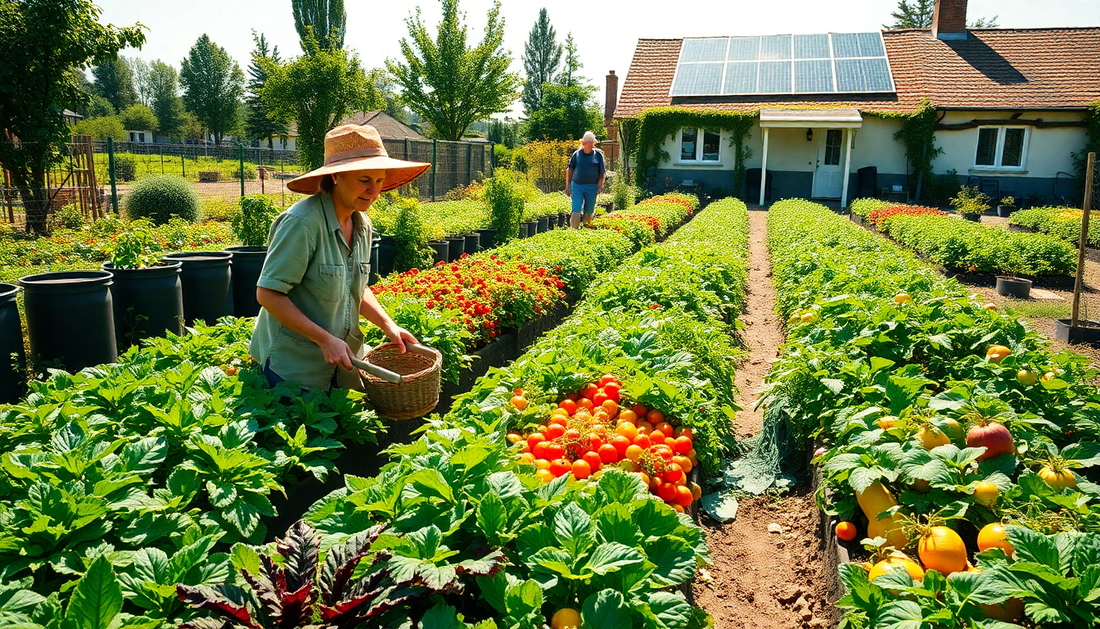
Cultivating a Sustainable Vegetable Garden: A Zero-Waste Approach
In a world increasingly conscious of our environmental impact, the desire to create sustainable, low-waste lifestyles has become a driving force for many. One area where this mindset can have a profound effect is in the realm of home gardening, particularly when it comes to growing your own vegetables. Idyl, a one-stop shop for all your gardening needs in Bangalore, is here to guide you through the process of establishing a thriving, eco-friendly vegetable garden.
The Benefits of a Zero-Waste Vegetable Garden
Embarking on a journey towards a zero-waste vegetable garden offers a multitude of benefits, both for the environment and for your own well-being. By adopting sustainable practices, you can reduce your carbon footprint, minimize waste, and enjoy the satisfaction of growing your own fresh, nutritious produce.
Reducing Environmental Impact
One of the primary advantages of a zero-waste vegetable garden is its ability to reduce your environmental impact. By composting food scraps and yard waste, you can divert these materials from landfills, where they would otherwise contribute to the release of methane, a potent greenhouse gas. Instead, the nutrient-rich compost can be used to enrich your soil, creating a closed-loop system that nourishes your plants and reduces the need for synthetic fertilizers.
Improving Soil Health
A well-designed zero-waste vegetable garden prioritizes the health of the soil, which is the foundation for successful plant growth. By incorporating organic matter, such as compost and mulch, you can improve soil structure, water-holding capacity, and nutrient availability. This, in turn, supports the thriving population of beneficial microorganisms and earthworms that are essential for a robust and resilient ecosystem.
Enhancing Biodiversity
A zero-waste vegetable garden can also serve as a haven for a diverse array of wildlife, including pollinators, birds, and beneficial insects. By incorporating native plants, avoiding the use of harmful pesticides, and providing habitats such as log piles or brush piles, you can create a vibrant, biodiverse environment that supports the natural balance of your garden.
Saving Money and Resources
Embracing a zero-waste approach to vegetable gardening can also have financial benefits. By reducing your reliance on costly synthetic fertilizers and pesticides, you can save money while simultaneously minimizing your consumption of non-renewable resources. Additionally, the fresh, homegrown produce you harvest can lead to significant savings on your grocery bills.
Establishing a Zero-Waste Vegetable Garden
Creating a thriving, low-waste vegetable garden requires a holistic approach that considers the entire lifecycle of your plants and the resources you use. Here are some key steps to get you started:
Assess Your Space and Plan Accordingly
Begin by evaluating the available space in your garden or on your balcony. Consider factors such as sunlight exposure, soil quality, and the size of your desired growing area. This information will help you select the most appropriate vegetables and design a layout that maximizes efficiency and productivity.
Implement Sustainable Soil Practices
Healthy soil is the foundation of a successful zero-waste vegetable garden. Start by conducting a soil test to determine the nutrient levels and pH, then amend the soil accordingly. Incorporate organic matter, such as compost or well-rotted manure, to improve soil structure and fertility. Avoid tilling, which can disrupt the delicate soil ecosystem, and instead opt for no-dig or minimal-disturbance methods.
Choose Appropriate Vegetable Varieties
Select vegetable varieties that are well-suited to your local climate and growing conditions. Look for heirloom or open-pollinated varieties, as they are often more resilient and adaptable than hybrid plants. Additionally, choose a diverse range of vegetables to create a balanced and self-sustaining ecosystem in your garden.
Embrace Companion Planting
Companion planting is a valuable technique in a zero-waste vegetable garden. By strategically placing certain plants next to each other, you can encourage beneficial interactions, such as pest control, nutrient sharing, and improved pollination. This approach can help reduce the need for external inputs and create a more harmonious, self-regulating garden.
Implement Water-Saving Strategies
Water conservation is a crucial aspect of a zero-waste vegetable garden. Utilize techniques such as drip irrigation, mulching, and rainwater harvesting to minimize water usage and ensure efficient water distribution to your plants. Consider incorporating drought-tolerant plants and using water-saving devices, such as soaker hoses or self-watering containers, to further optimize your water management.
Compost and Recycle Waste
Composting is the heart of a zero-waste vegetable garden. By diverting food scraps, yard waste, and other organic materials from landfills, you can create a rich, nutrient-dense compost that can be used to nourish your plants. Invest in a composting system, whether it's a simple bin or a more advanced tumbler, and be sure to maintain the proper balance of green (nitrogen-rich) and brown (carbon-rich) materials.
Embrace Natural Pest Management
Avoid the use of synthetic pesticides, which can harm beneficial insects and disrupt the delicate balance of your garden ecosystem. Instead, opt for natural pest management strategies, such as introducing beneficial predators, using organic pest repellents, and practicing crop rotation. This approach not only protects the environment but also ensures the safety and quality of your homegrown produce.
Cultivating a Thriving, Sustainable Future
By embracing the principles of a zero-waste vegetable garden, you can play a vital role in creating a more sustainable future. Through your efforts, you'll not only enjoy the bounty of fresh, nutritious produce but also contribute to the preservation of our planet's precious resources. Idyl, your trusted partner in Bangalore, is here to support you every step of the way as you embark on this rewarding journey towards a greener, more eco-friendly lifestyle.







No comments